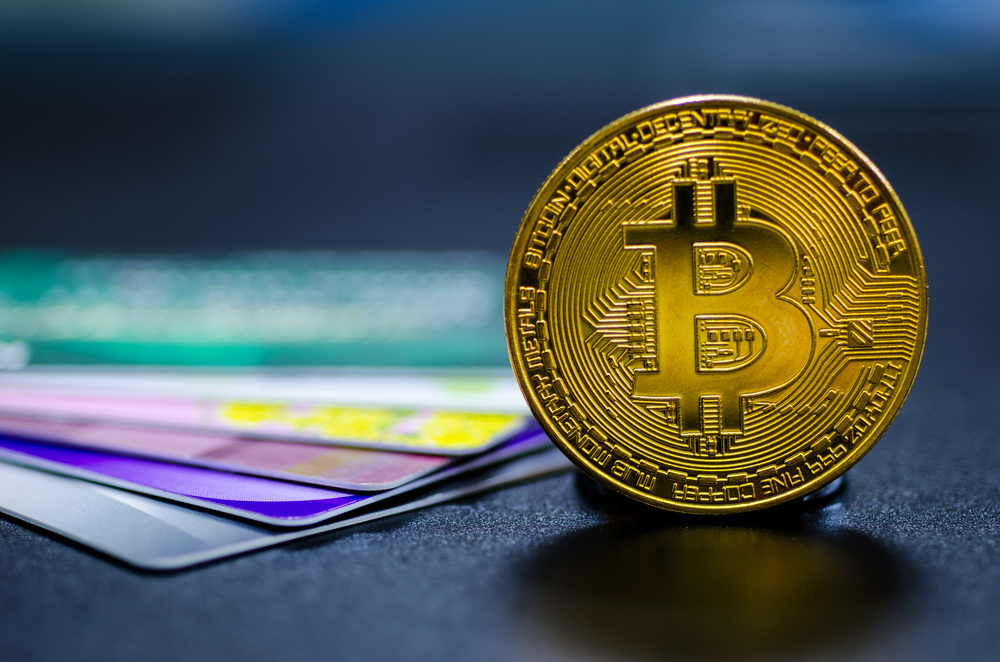

It’s not just the just United States debt reaching an all-time high, individual credit card debt is also breaking new records in 2019. With credit card debt mounting, and a potential economic recession looming on the horizon, should crypto investors really be buying Bitcoin with their credit cards?
Those that have already loaded up on crypto with their credit cards during the 2017 bull run may be sorely regretting it now that Bitcoin has repeatedly painted new lows since. American Credit Card Debt Reaches New High, Average of $6,375 Per Person
While Bitcoin may be hitting new lows, American credit card is reaching new highs. According to new data, American credit card debt is up 3% year-over-year, with the average individual wracking up a balance of $6,375 in debt.
The Federal Reserve says that total credit card debt hit $1 trillion in 2017, the highest ever on record.
It’s not all bad for those in debt. The VantageScore consumer credit-scoring model used by credit reporting firms Equifax, Experian and more, is also at the highest it has been in the past decade. The increase suggests that consumers have again become comfortable and competent at managing their debt.
Why Investors Should Never Buy Bitcoin or Crypto on Credit
Despite clearly being better at managing debt, investors mistakenly purchased crypto at the height of the Bitcoin bull run with their credit cards, ruining many financially in the process.
Take one Redditor’s story for example, which adds validity to the old adage to “never invest more than you can afford to lose.” Reddit user appropriately named u/DeforestedMoon claims he is $20,000 in debt due to his “tale of youth and financial irresponsibility” involving credit cards and crypto.
This person revealed they nearly made a profit of $10,000 from investing in XRP, and another $10,000 from “other coins.” Hype and irrational exuberance, which happens at the peak of market cycles, got the best of him, and he further loaded up on various cryptocurrencies using his credit card and even took out some loans.
“At first I would make Coinbase purchases with credit cards, then I moved on to taking out loans after Visa started considering credit card crypto purchases as cash advances,” he explained.

The story isn’t uncommon. Many investors were purchasing cryptocurrencies with credit cards, prompting credit card companies to step in and block the transactions from happening. While the crypto community was quick to point fingers at credit card firms for being in fear of crypto unseating them from the financial throne they currently enjoy, credit card companies really had their best interest in mind and may have saved many investors from further financial distress.
Crypto is a risky, speculate asset class, and in a sense, could be considered gambling in some way. And gambling on a credit card is incredibly dangerous. Even many U.S. states prevent individuals from purchasing something as innocent as lottery tickets with a credit card.
Bitcoin and crypto is far worse to put on a credit card. Should the market turn as it did in 2018, causing the value of most cryptocurrencies feel as much as 95%, it could spell financial disaster. It’s bad enough to lose money on an investment, but it’s far worse to pay an annual percentage rate of as much as 36% on value that essentially evaporated into thin air.
While it is never recommended that investors should buy crypto on a credit card, it very well can be done responsibly, and in the case with the recent news with Binance adding credit card purchases of crypto, it does help with crypto adoption and creates positive market movement by adding another fiat on-ramp for investors to take advantage of.
If one should consider investing in crypto using a credit card, one should also understand the risks involved with both cryptocurrencies and credit card debt, and have a clear plan on how to pay that debt down. Relying on the crypto market to revive is not a sound debt elimination strategy and is gambling with one’s finances.
A much safer strategy to invest in crypto and Bitcoin is to dollar cost average – buying a set amount of crypto at regularly scheduled intervals.
